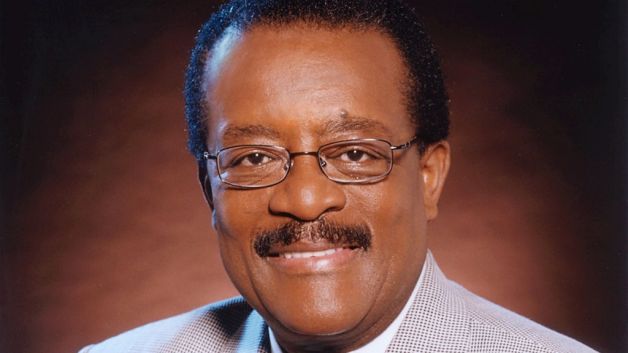Johnnie Cochran was more than just a lawyer; he was a cultural icon. His name became synonymous with high-stakes legal battles and civil rights advocacy, captivating the public’s attention in ways few others could. From his early days as an attorney to his rise as one of the most recognized figures in law, Cochran left an indelible mark on the justice system. His fierce dedication to defending those who needed it most challenged societal norms and pushed for significant changes within criminal justice reform. Whether you’re familiar with his work or discovering him for the first time, exploring Johnnie Cochran’s legacy offers invaluable insights into both legal history and contemporary society.
Early life and career of Johnnie Cochran
Johnnie Cochran was born on October 2, 1937, in Shreveport, Louisiana. His family later moved to Los Angeles, where he grew up in a vibrant community that shaped his views on justice and equality.
After earning his undergraduate degree from the University of California, Los Angeles (UCLA), Cochran attended Loyola Law School. He graduated in 1962 and began his legal career as an assistant district attorney in Los Angeles.
Cochran quickly made a name for himself as a defense attorney. His sharp wit and eloquence caught the attention of many within the legal community. Soon enough, he built a reputation for taking on cases involving civil rights violations and police misconduct.
This early phase laid the groundwork for what would become one of the most significant careers in American law. As he honed his skills, Johnnie established himself not only as a lawyer but also as an advocate for marginalized communities.
The O.
J. Simpson Trial: How Johnnie Cochran became a household name
The O.
J. Simpson trial was a moment that captivated the nation in the mid-1990s. Johnnie Cochran stood at the forefront, leading one of the most famous defenses in American legal history.
His charisma and courtroom prowess transformed him into a household name almost overnight. With memorable phrases like “If it doesn’t fit, you must acquit,” he captured attention and swayed public opinion.
Cochran’s strategy focused not only on evidence but also on race relations in America. He connected with audiences by addressing systemic issues while defending his client vigorously.
The stakes were high, and Cochran delivered under pressure, showcasing his ability to navigate complex legal landscapes. His role during this trial reshaped perceptions of defense attorneys and their influence within high-profile cases.
This case propelled him into celebrity status, making him an iconic figure beyond just law—a symbol of advocacy for justice amid controversy.
Other high-profile cases that defined Cochran’s legacy
Johnnie Cochran’s legal prowess extended far beyond the O.
J. Simpson trial. One notable case was that of Abner Louima, a Haitian immigrant who was brutally assaulted by NYPD officers in 1997. Cochran took on this civil rights battle, fighting for justice against police misconduct.
Another significant case involved Michael Jackson, where Cochran represented the pop icon during a high-profile child molestation charge in 2005. His strategic approach and charisma were evident as he skillfully navigated the complexities of celebrity legal battles.
Cochran also played a pivotal role in advocating for victims of wrongful convictions and racial discrimination throughout his career. These cases showcased not only his formidable skills but also his unwavering commitment to social justice issues that resonated deeply within marginalized communities.
The impact of his work on civil rights and criminal justice reform
Johnnie Cochran’s work transcended the courtroom. He was a fierce advocate for civil rights, fighting against systemic racism and injustice in legal proceedings.
Through high-profile cases, he highlighted the disparities faced by minorities within the criminal justice system. His strategic use of media illuminated issues that many chose to ignore.
Cochran’s commitment to reform extended beyond individual cases. He pushed for changes that addressed police misconduct and racial profiling. His influence inspired countless activists and lawyers to take up similar causes.
In addition, his legacy encouraged conversations about the intersection of race and justice in America. The impact of his efforts continues to resonate today, influencing policies aimed at creating a more equitable legal landscape.
His passion ignited movements that sought accountability from law enforcement agencies while advocating for fair treatment under the law regardless of race or background.
Controversies surrounding Cochran’s tactics and legacy
Johnnie Cochran’s career was not without its controversies. His unconventional tactics often sparked debate among legal professionals and the public alike.
Critics accused him of using theatrics to sway juries rather than relying solely on evidence. His famous line, “If it doesn’t fit, you must acquit,” became emblematic of a style that some viewed as sensationalist.
Moreover, his success raised questions about race and justice in America. Supporters argued he brought much-needed attention to systemic inequalities, while detractors claimed he prioritized celebrity over the truth.
Cochran’s legacy remains complicated. He is celebrated for championing civil rights yet scrutinized for methods that some believe undermined the integrity of the legal system. This duality continues to fuel discussions around ethics in high-profile cases and the role race plays within them.
Honoring Johnnie Cochran’s legacy: His lasting influence
Honoring Johnnie Cochran’s legacy means recognizing the profound impact he had on the legal landscape. His courtroom prowess not only made him a prominent figure in high-profile cases but also paved the way for discussions around civil rights and justice reform.
Cochran championed causes that resonated with marginalized communities. He used his platform to fight against systemic inequalities, making strides that extended beyond individual cases. This commitment to social justice inspired countless lawyers and activists alike.
His approach to law was both innovative and strategic, often blending theatrics with substance. This distinctive style set a precedent for how attorneys could engage juries emotionally while grounding arguments in solid evidence.
Even years after his passing, Cochran’s influence remains evident. Legal professionals still study his tactics in hopes of replicating his success. Moreover, new generations continue to draw inspiration from his unwavering dedication to fighting injustice.
As we pay tribute to Johnnie Cochran, it’s essential to carry forward his lessons of resilience and advocacy within our own pursuits of fairness and equality in the legal system. The principles he stood by are as relevant today as they were during his career—a testament to a legacy that will endure through time.


